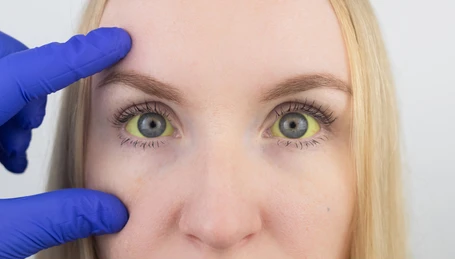Jaundice is a condition characterized by the yellowing of the skin and eyes, caused by a buildup of bilirubin in the body. Bilirubin is a yellowish substance formed when red blood cells break down. Normally, the liver processes bilirubin and excretes it through bile, a digestive fluid. However, when the liver is not functioning properly, bilirubin levels can rise, leading to jaundice.
Jaundice can occur at any age and may be caused by various factors, including liver diseases (such as hepatitis or cirrhosis), obstruction of the bile ducts, hemolytic disorders (where red blood cells are destroyed too quickly), or certain medications. Newborns are also susceptible to jaundice due to the immaturity of their liver function.
In this article, we will delve deeper into the causes, symptoms, and treatment for jaundice, exploring both conventional and natural cure for jaundice approaches to managing this condition.
Understanding The Causes And Risk Factors
Jaundice occurs when the liver is unable to properly process bilirubin, a byproduct of the breakdown of red blood cells. Normally, bilirubin is produced when hemoglobin, the protein in red blood cells that carries oxygen, is broken down. This unconjugated bilirubin is then carried to the liver, where it is conjugated (chemically altered) to make it water-soluble and easier to excrete.
Conjugated bilirubin is the form of bilirubin that has been processed by the liver and is ready for excretion. However, when there is a problem with the liver or bile ducts, conjugated bilirubin can accumulate in the blood, leading to a condition known as hyperbilirubinemia, which manifests as jaundice.
Common Causes Of Jaundice
Several factors can contribute to the development of jaundice:
- Gallstone disease: where gallstones block the bile ducts, can prevent the flow of bile and lead to the accumulation of bilirubin.
- Excessive alcohol consumption : can damage the liver and impair its ability to process bilirubin.
- Gallbladder or pancreatic cancer
- cirrhosis (scarring of the liver),
- liver infections (such as hepatitis),
- hemolytic anemia (where red blood cells are destroyed faster than they are produced)
are some of the common causes of jaundice. These conditions can disrupt the normal functioning of the liver and bile ducts, leading to an accumulation of bilirubin in the blood.
Recognizing The Symptoms
- Yellow tinge to the skin, mucous membranes, and the whites of the eyes
- Pale stools
- Dark urine
- Itchiness
In Infants
Jaundice in infants, known as neonatal jaundice, is common and usually harmless. However, in some cases, it can be a sign of a more serious underlying condition, such as an infection or liver problem. Parents should seek medical attention if they notice jaundice in their newborn.
Accompanying Symptoms
- Fatigue
- Abdominal pain
- Weight loss
- Vomiting
- Fever
These symptoms may vary depending on the cause of jaundice. It is important to consult a healthcare professional for an accurate diagnosis and appropriate treatment.
Naturopathy Treatment For Jaundice: A Holistic Approach
Nirvana Naturopathy offers a unique perspective on treating jaundice, focusing on natural cure for jaundice and lifestyle modifications to support the body's innate healing abilities. Unlike conventional medicine, which often relies on medications and procedures to manage symptoms, naturopathy emphasizes addressing the root cause of the condition and restoring balance to the body.
Herbal Remedies
Naturopathic doctors may recommend herbal remedies known for their liver-supporting properties, such as milk thistle, dandelion root, and turmeric. These herbs are believed to help cleanse and detoxify the liver, promoting the elimination of bilirubin and other toxins from the body.
Detoxification Therapies
Naturopathic treatments for jaundice may include detoxification therapies such as hydrotherapy, which uses water at various temperatures to stimulate blood flow and enhance liver function. Castor oil packs and enemas may also be recommended to help remove toxins from the body.




